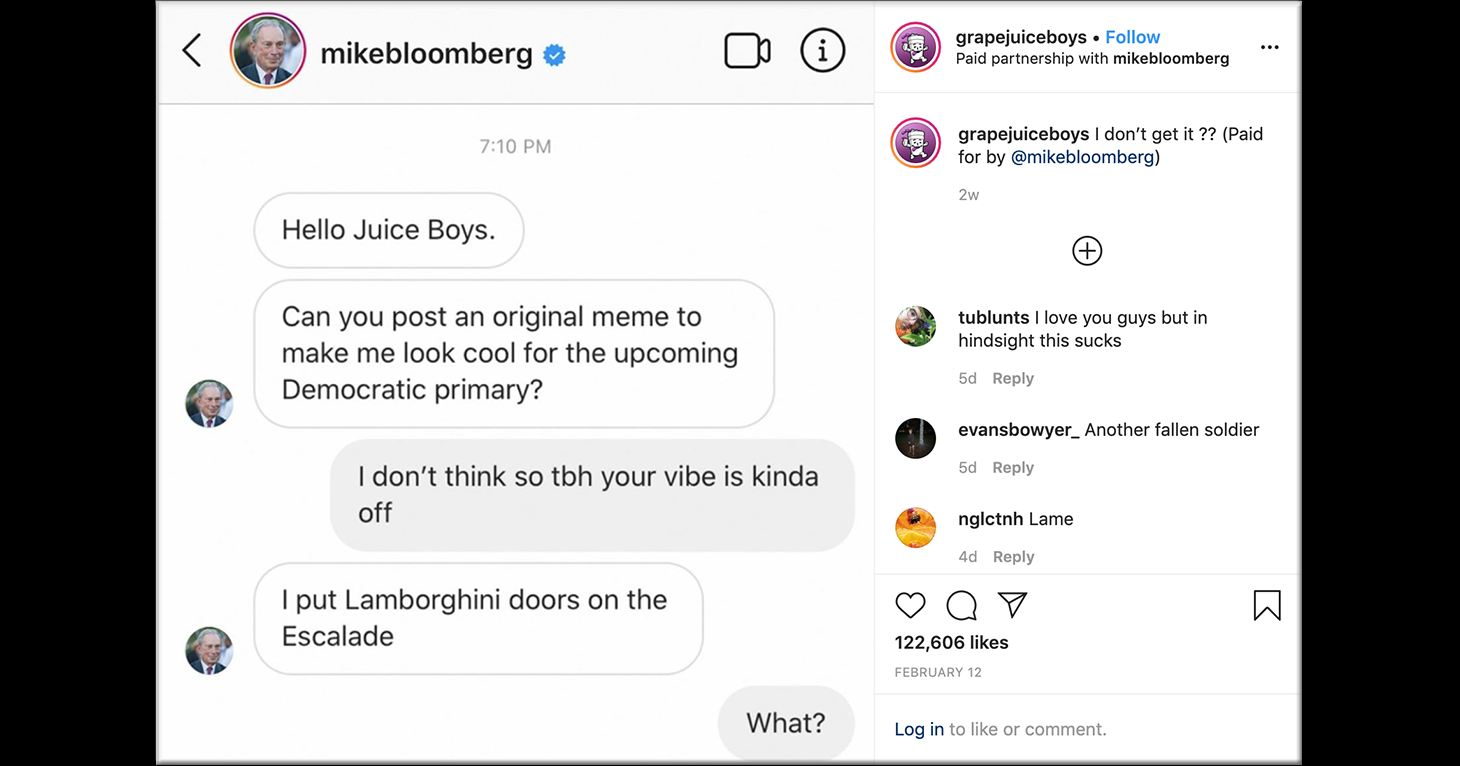
FTC Should Ban Individual Impersonation Scams
TINA.org submits comment in support of FTC’s proposal to ban fake celebrity endorsements, romance scams and other impersonation scams.
Political candidates are jumping on the #InfluencerMarketing bandwagon.
| Michelle A. Amazeen
Facebook recently announced that it is letting U.S. candidates for political office run “branded content” on its platforms. Particularly problematic is that Facebook does not consider branded or sponsored content as advertising because it does not directly profit from it. Regardless of Facebook’s financial gain, branded content is advertising.
What is branded content?
Broadly, branded content is media content that is created by a brand and hosted on its own media properties such as a website or social media accounts like Pinterest or Twitter. Whether it’s an article, a video, or a social media post, the content is created to inform and/or entertain audiences. And while there may not be any overt sales pitch, ultimately the goal is to create favorable associations with the brand in the minds of consumers.
The branded content that Facebook is allowing is a partnership between political candidates – which are brands unto themselves – and social media influencers, or people who have a lot of “followers” on their social media accounts and are therefore considered influential. Eighty years of social science research has shown that an opinion leader – someone we know and trust – has more influence on people’s decision-making than does a paid media message such as an advertisement.
Why is this a problem?
The first problem is that many people do not realize that the accounts they see on social media are being paid to post favorable comments about brands. According to the Federal Trade Commission (FTC), commercial content – paid speech – must be distinguishable from other types of speech such as news and entertainment. Research shows that people are often bad at identifying sponsored content, particularly if they are not primed to look for it or when they are engaged with media for entertainment purposes.
The problem is exacerbated because there are no standardized language requirements as to how sponsored posts should be disclosed. While disclosures that use the language #sponsored or #ad may be easier for people to understand, influencers often use less clear language such as #sp or #partner or pretty much any term they want. Compliance with FTC guidelines is problematic and not well enforced. Regardless, the FTC does not have jurisdiction over political advertising, which means its laws and guidance do not apply to this type of speech. The FTC can only regulate commercial speech.
Political advertising is a form of political speech, which is regulated by the Federal Election Commission (FEC). The FEC requires a “disclaimer” to identify who paid for the ad and who authorized it. But a disclaimer is only required for bulk emails, websites available to the general public, and “public communications,” a term which is not defined as including social media platforms. Specifically, the FEC says “public communications” include TV, newspaper, magazines, billboards, mass mailings, telephone banks, and other “general public political advertising.” The FEC then goes on to state that “general political advertising does not include internet ads, except for communications placed for a fee on another person’s website” (See 11 CFR 110.11(a)).
Thus, the regulatory agencies overseeing advertising – both commercial and political – have not kept up with its rapidly changing nature.
A second problem is that Facebook indicates they will not be cataloging these branded content posts in its political advertising library. This means that people won’t be able to keep track of the claims that are made on behalf of candidates nor how much candidates are spending on this type of political speech.
While political speech is constitutionally protected, it is important to know what candidates are saying in their political advertising so that they may be held to account for their claims. Without a mechanism to track political advertising on social media, it will be difficult to do so. Journalists and watchdog groups will find it difficult to scrutinize these messages for accuracy, and political opponents will not be able to defend themselves when necessary.
Furthermore, the credibility of a message likely depends not only on whether it was a paid message, but how much the influencer was paid to make a claim. Influencer marketing has become a profession in and of itself, with those having a seemingly large number of followers (which can be purchased in violation of social media platform policies) able to command hefty payments for posts. While regular Americans may understand that influencers deserve to be compensated for the content they have created and/or curated, they might look skeptically at an influencer – and their claims – who is paid a disproportionate sum of money. Without knowing whether an influencer received $100 or $1,000,000 for a post favorable to a candidate, voters are deprived of information that will help them weight the amount of credibility to attribute to a claim.
As technological advances continue to change the way we do business, socialize, and elect our political leaders, regulations must keep up to ensure fair practices and minimize deception. With the 2020 election bearing down on the US, the disagreement over just what advertising is indicates the newfangled social media are woefully unprepared to prevent the misuse of their platforms.
TINA.org submits comment in support of FTC’s proposal to ban fake celebrity endorsements, romance scams and other impersonation scams.
Why TINA.org supports FTC’s proposed changes to COPPA Rule but pushes for more.
These brand collabs are far from fab.


